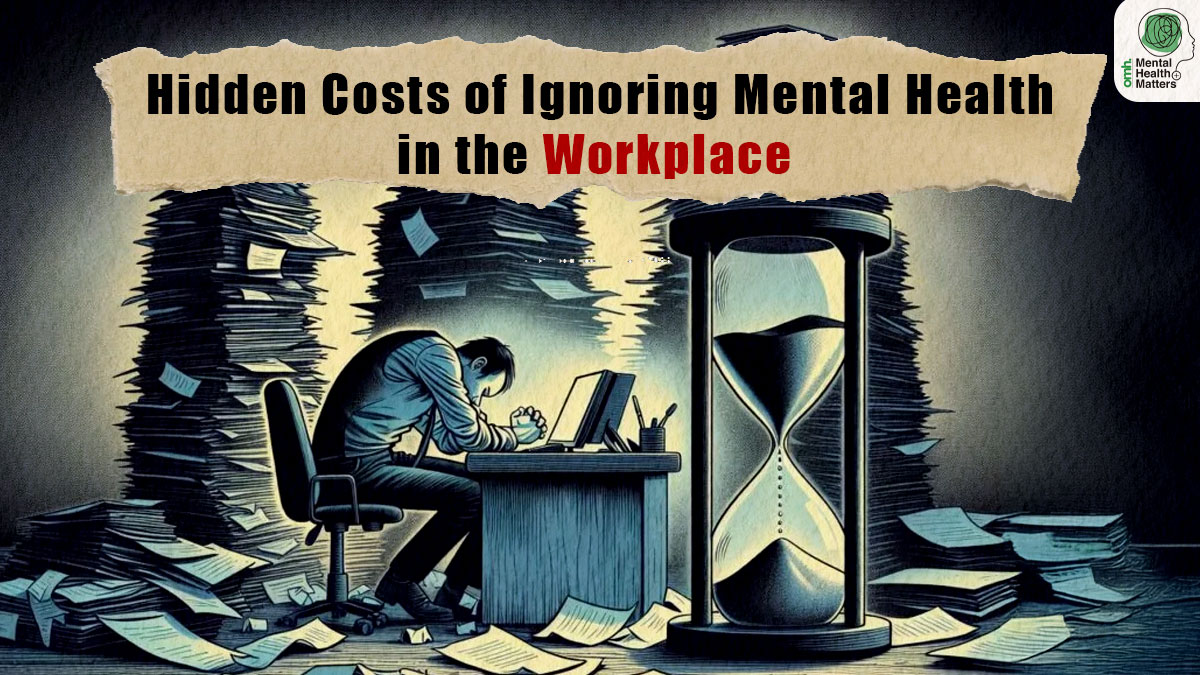Mental health is often an overlooked aspect of workplace well-being, yet its neglect can have severe consequences for both employees and organisations. When mental health is ignored, it leads to a range of issues, from reduced productivity to higher turnover rates, ultimately affecting the bottom line of a company. On this World Mental Health Day, we spoke to our expert Dr Samant Darshi, Consultant Psychiatrist and Director, Psymate, Noida, who explained the hidden costs of neglecting mental health in the workplace and how to build a supportive and productive work environment.
Hidden Costs Of Ignoring Mental Health In The Workplace
Reduced Productivity and Burnout
“Employees dealing with mental health challenges like stress, anxiety, or depression often struggle to maintain their usual levels of productivity. They may feel overwhelmed by daily tasks, which can lead to burnout, a state of emotional, physical, and mental exhaustion,” said Dr Darshi. Burnout not only impacts an individual’s performance but can also spread throughout the team, creating a ripple effect that affects overall output.
For instance, employees experiencing mental health issues may find it difficult to concentrate, leading to errors or missed deadlines. Decision-making skills also suffer when an individual’s mental well-being is compromised, reducing their ability to think creatively or solve problems efficiently. In the long run, this reduction in productivity can hinder an organisation’s growth, making it harder to stay competitive in the marketplace.
Also Read: World Mental Health Day 2024: Addressing The Impact Of Remote Work On Employee Well-Being
Increased Absenteeism and Turnover

One of the most immediate and visible effects of poor mental health management in the workplace is absenteeism. Employees who are overwhelmed by stress or anxiety are more likely to call in sick or take extended leave, added Dr Darshi. Frequent absenteeism not only disrupts workflows but also places additional strain on other team members, who may need to cover for absent colleagues.
According to a 2022 study, workplaces that foster positive mental health and support employees with mental illnesses are more likely to decrease absenteeism (fewer days missed) and presenteeism (lower productivity while at work), leading to increased overall productivity.
Financial Implications for Organisations
“The financial burden of neglecting mental health in the workplace extends beyond lost productivity and absenteeism. Untreated mental health issues can lead to increased healthcare costs for companies,” said Dr Darshi.
For instance, mental health conditions often co-occur with physical health problems, such as heart disease or diabetes, which can drive up health insurance premiums. Additionally, organisations that fail to provide adequate mental health support may face legal risks, particularly if employees develop severe mental health issues that could have been prevented with proper intervention.
Also Read: Crushed By Careers: The Silent Mental Health Struggles at Work
Creating a Supportive Work Environment

According to the World Health Organization (WHO), a lack of proper support and systems in the workplace, particularly for individuals with mental health conditions, can hinder their ability to find satisfaction in their work and perform effectively.
Addressing mental health in the workplace doesn’t have to be complicated or expensive. Simple steps, such as flexible work schedules, can significantly reduce stress levels and improve employees’ ability to manage their workload. Mental health awareness programs can also be highly effective. By training managers and team leaders to recognise the signs of mental health struggles, companies can create a culture where employees feel comfortable seeking help without fear of stigma.
“Another way to support mental health is by providing employees with access to resources, such as Employee Assistance Programs (EAPs). These programs offer confidential counselling and support services, helping employees manage stress, anxiety, or other personal issues that might affect their work,” added Dr Darshi. Additionally, promoting self-care through wellness initiatives, such as offering gym memberships, meditation apps, or mental health days, can significantly boost morale.
Supporting Remote Employees’ Mental Health
With the rise of remote work, ensuring the mental well-being of employees outside the office has become just as important. Remote workers are often at risk of isolation, which can lead to a decline in mental health. Employers can counteract this by fostering a sense of community through regular virtual team-building activities or even informal check-ins. These efforts help remote employees feel connected and valued, reducing feelings of loneliness.
[Disclaimer: This article contains information provided by an expert and is for informational purposes only. Hence, we advise you to consult your own professional if you are dealing with any health issues to avoid complications.]
